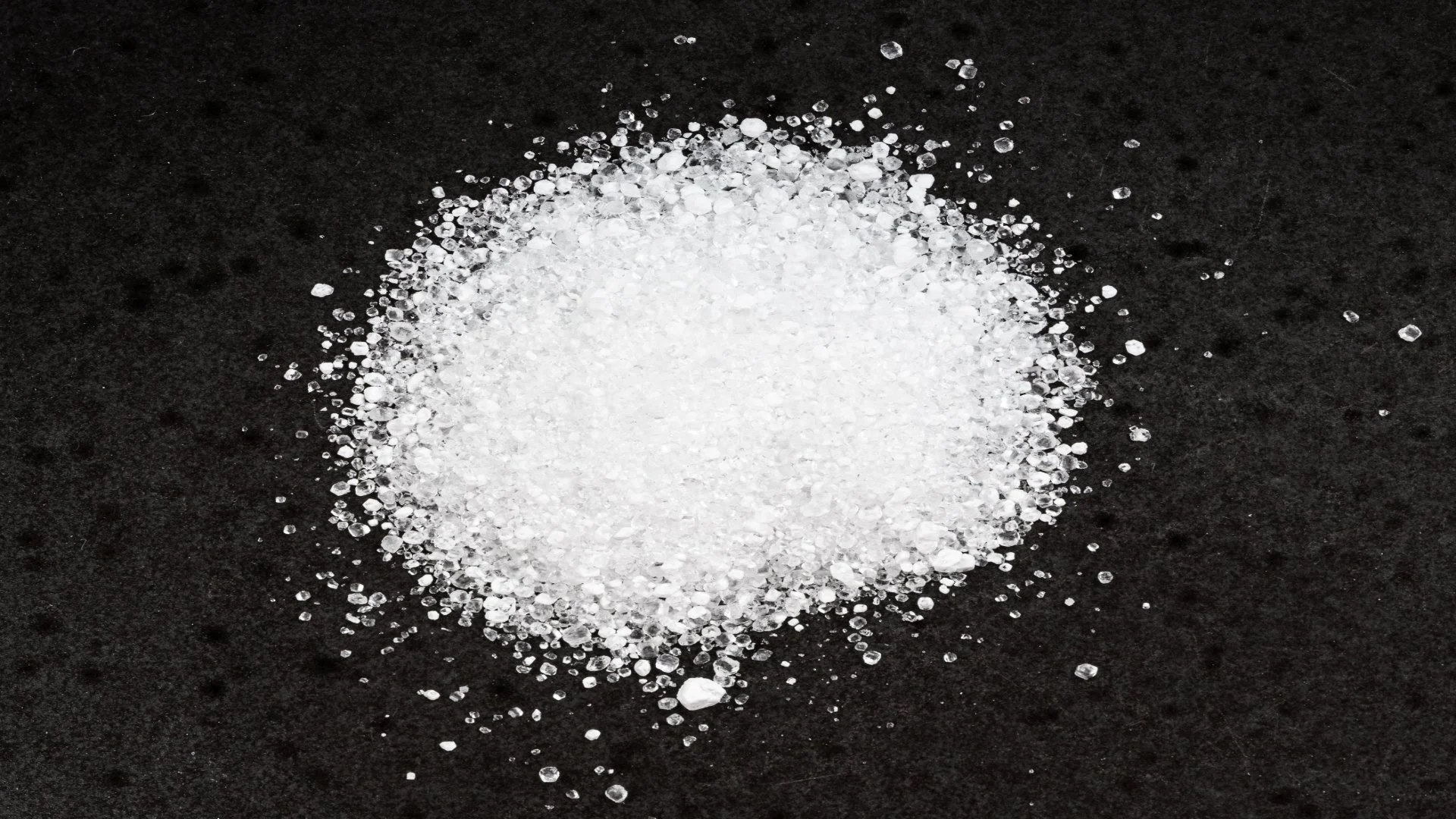Drug and Alcohol
The Dangers of Ketamine

Can you overdose on ketamine? Discover the risks, warning signs, and important steps to stay safe while understanding ketamine use and overdose.
Can you overdose on ketamine? Many people underestimate the dangers, thinking occasional use is harmless. Yet even a single misuse can lead to serious physical and mental health complications, leaving you or a loved one at risk.
Recognizing the signs and understanding the potential consequences is essential. By learning how ketamine affects your body and mind, you can take the necessary steps to protect yourself, seek help, and prevent an overdose before it’s too late.
What Is Ketamine?

Ketamine is a powerful dissociative anesthetic originally developed for use in surgical procedures. It works by interrupting communication between the brain and body, producing sedation, pain relief, and in some cases, hallucinations. In controlled medical settings, ketamine can be a valuable tool for anesthesia and for managing severe pain.
Ketamine and Mental Health
In recent years, ketamine has also gained attention for its potential in treating mental health conditions such as depression and anxiety. Administered in low doses under professional supervision, it can provide relief for individuals who have not responded to conventional treatments.
Risks of Recreational Use
However, outside of medical supervision, ketamine can be dangerous. Recreational or frequent use can quickly lead to misuse, dependency, and a range of physical and psychological complications. Understanding ketamine’s effects is crucial to recognizing its dangers and protecting your health.
Can You Overdose on Ketamine?
Yes, it is possible to overdose on ketamine. Even though it has legitimate medical uses, taking too much—or using it outside a controlled environment—can have serious consequences. Factors such as high doses, frequent use, or combining ketamine with alcohol or other drugs greatly increase the risk of overdose.
Potential Consequences
An overdose can range from mild symptoms, such as nausea and confusion, to severe, life-threatening conditions, including slowed breathing, dangerously high heart rate, or unconsciousness. Even small recreational doses can produce unpredictable effects, making any unsupervised use risky.
Why Awareness Matters
Recognizing the possibility of overdose is essential for anyone using ketamine or concerned about a loved one. Being informed can save lives and help you take appropriate precautions if exposure occurs.
Signs and Symptoms of Ketamine Overdose
Below are some of the symptoms of ketamine overdose
Physical Symptoms
Some of the most common physical signs of a ketamine overdose include:
Difficulty breathing or slowed respiration
Rapid or irregular heart rate
Nausea and vomiting
Loss of coordination or consciousness
Psychological Symptoms

Ketamine also affects the mind, and psychological symptoms can appear quickly:
Severe confusion or disorientation
Intense hallucinations or delusions
Panic, anxiety, or delirium
Acting Early Saves Lives
Identifying these symptoms promptly is critical. Early recognition increases the chances of receiving timely help and preventing serious harm. If someone shows multiple signs of overdose, immediate intervention is necessary.

We’re Here To Help You Find Your Way
Would you like more information about mental health or drug addiction? Reach out today.
Immediate Actions in Case of Overdose
If you suspect a ketamine overdose, contact emergency services immediately. Do not wait to see if symptoms improve on their own. Every minute counts.
Ensure Safety While Waiting
While waiting for help to arrive:
Keep the person lying on their side to prevent choking if vomiting occurs.
Monitor breathing and responsiveness at all times.
Avoid giving any additional substances, including alcohol or other drugs, which can worsen the situation.
The Importance of Quick Action
Prompt, calm intervention can make a critical difference in recovery. Acting quickly can reduce the risk of long-term complications or death.
Long-Term Effects of Ketamine Misuse
Ketamine misuse can have serious and lasting consequences, even without a full overdose.
Physical Health Consequences
Repeated use of ketamine can cause significant damage to the bladder and urinary tract, sometimes leading to irreversible complications.
Kidney problems and other organ issues may develop over time. Additionally, chronic ketamine use can disrupt normal heart rate and blood pressure, putting your cardiovascular health at risk.
Cognitive and Mental Health Consequences
Ketamine also affects the brain. Long-term misuse can impair memory, focus, and learning ability. Emotional health may be impacted as well, with increased anxiety, depression, or mood disorders. Prolonged use heightens the risk of developing a dependency, making recovery more challenging.
Why Early Intervention Matters
Recognizing these risks early is critical. Taking action as soon as possible can prevent permanent physical and mental damage, support successful recovery, and help you reclaim a balanced, healthy life free from ketamine dependence.

We’ll Lead You to New Heights
Do you have more questions about mental health or drug addiction? Reach out.
Treatment Options for Ketamine Addiction
Overcoming ketamine addiction requires a comprehensive approach that addresses both the physical and psychological aspects of dependence, guiding you toward lasting recovery.
Detoxification
The first critical step in overcoming ketamine addiction is medically supervised detoxification. During this phase, the body is carefully and safely cleared of ketamine under professional oversight. Detox helps manage withdrawal symptoms, which can include anxiety, nausea, restlessness, and sleep disturbances, reducing the risk of complications.
Medical supervision ensures that you are monitored closely, allowing healthcare providers to intervene if serious symptoms arise. Detox is not only a physical process but also the beginning of a structured path toward long-term recovery.
Therapy and Counseling

Therapy plays a central role in addressing the psychological and emotional factors behind ketamine misuse.
Cognitive-behavioral therapy (CBT) is one approach that helps you identify patterns of thought and behavior that lead to substance use, teaching strategies to challenge and change them.
Motivational interviewing is another method, designed to strengthen your personal motivation to change and stay committed to recovery.
Therapy provides a safe space to explore triggers, manage cravings, and develop coping mechanisms, equipping you with tools to maintain sobriety over time.
Support Groups
Peer support and group programs offer a sense of community and accountability that can be crucial during recovery. Being part of a group of individuals who have faced similar challenges provides validation, encouragement, and a shared understanding of the journey.
Support groups foster motivation, reduce feelings of isolation, and offer practical strategies for managing everyday challenges while maintaining abstinence from ketamine.
Personalized Treatment Plans
Every individual’s path to recovery is unique, which is why personalized treatment plans are so important. These plans are tailored to your specific needs, combining detox, therapy, and peer support in ways that suit your situation and goals.
By addressing both the physical and psychological aspects of ketamine addiction, personalized treatment significantly increases the chances of long-term success, helping you regain control over your life and build a healthier, substance-free future.
The Role of The Edge Treatment Center
At The Edge Treatment Center, we understand the challenges of overcoming ketamine misuse and the fear that comes with thinking about overdose. We provide compassionate, evidence-based care designed to address both addiction and mental health concerns.
We work closely with you to create a personalized treatment plan that may include medical detox, therapy, and ongoing support. Our goal is to help you or your loved one regain control, build healthier habits, and restore well-being.
Recovery from ketamine misuse is possible, and at The Edge Treatment Center, we are committed to walking alongside you every step of the way, providing the guidance, support, and tools you need for a safer, healthier future.

We’re Here To Help You Find Your Way
Do you need advice about mental health or drug addiction? Reach out today.
Ketamine Taking Over Your Life? The Edge Treatment Center Can Help
Ketamine misuse and the risk of overdose can feel overwhelming, but recovery is possible. At The Edge Treatment Center, we provide personalized, compassionate support to help you or your loved one safely overcome ketamine addiction.
From medically supervised detox to therapy and ongoing care, we guide you through every step of the recovery process. You don’t have to face this alone, contact us today. With the right support, you can regain control of your life, restore your well-being, and build a future free from ketamine dependence.
What Is Ketamine and Why Is It Used?
Ketamine is a dissociative anesthetic used medically for surgery, pain management, and in some cases, treatment-resistant depression. It alters brain communication, producing sedation and pain relief. Outside medical supervision, ketamine carries a high risk of misuse and serious health complications.
How Can I Tell if Someone Has Overdosed on Ketamine?
Signs of ketamine overdose include slowed or irregular breathing, elevated heart rate, nausea, loss of consciousness, severe confusion, hallucinations, and panic. Recognizing these physical and psychological symptoms early is critical for preventing life-threatening complications.
What Should I Do if I Suspect a Ketamine Overdose?
Immediately call emergency services. Keep the person safe by laying them on their side, monitor their breathing, and stay with them at all times. Avoid giving any additional substances, including alcohol or other drugs, until medical help arrives.
Can Ketamine Addiction Be Treated?
Yes. Ketamine addiction can be treated through medically supervised detox, therapy such as cognitive-behavioral therapy, counseling, and peer support. Personalized treatment plans address both physical dependence and underlying psychological factors, improving the chances of long-term recovery.
How Can The Edge Treatment Center Assist in Recovery From Ketamine Misuse?
The Edge Treatment Center provides compassionate, personalized care for individuals struggling with ketamine addiction. We offer supervised detox, therapy, counseling, and ongoing support to help you regain control, manage triggers, and build a life free from substance dependence.

We’re Here To Help You Find Your Way
If you or a loved one is struggling with addiction, there is hope. Our team can guide you on your journey to recovery. Call us today.
Written by
 Brian Moore
Brian MooreContent Writer
Reviewed by
 Jeremy Arzt
Jeremy ArztChief Clinical Officer
Drug and Alcohol
October 17, 2025
